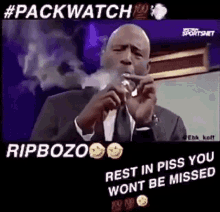I really hate this guy.
ROME — Silvio Berlusconi, the brash media mogul who revolutionized Italian television using privately owned channels to become the country’s most polarizing and prosecuted prime minister over multiple stints in office and an often scandalous quarter-century of political and cultural influence, died on Monday at San Raffaele Hospital in Milan. He was 86.
His death was confirmed in a statement by Prime Minister Giorgia Meloni, with whom he was a coalition partner in the current Italian government. No cause of death was given, but he was hospitalized last week as part of his treatment for chronic leukemia and other ailments.
To Italians, Mr. Berlusconi was constant entertainment — both comic and tragic, with more than a touch of off-color material — until they booed him off the stage. But he kept coming back. To economists, he was the man who helped drive the Italian economy into the ground. To political scientists, he represented a bold new experiment in television’s impact on voters. And to tabloid reporters, he was a delicious fount of scandal, gaffes, ribald insults and sexual escapades.
A gifted orator and showman who sang on cruise ships as a young man, Mr. Berlusconi was first elected prime minister in 1994, after the “Bribesville” scandals, which had dismantled Italy’s postwar power structure and removed his political patron, former Prime Minister Bettino Craxi, from office. Mr. Berlusconi famously announced that he would “enter the field” of politics to deliver business-minded reforms, a move that his supporters framed as a selfless sacrifice for the country but that his critics considered a cynical effort to protect his financial interests and secure immunity from prosecution related to his business affairs.
That first go in office collapsed quickly, but voters, many persuaded by his televised signing of a “Contract With Italians,” overwhelmingly chose him, Italy’s richest man, to lead the country again in 2001, this time as the head of Italy’s largest parliamentary majority since World War II.
That center-right governing coalition lasted longer than any government had since the war. In 2005, he became prime minister again after a government reshuffle, then used his power to upend the electoral law to give himself a better shot at winning the next general election. He narrowly lost that bid, in 2006, but stayed at center stage and returned to power in snap elections in 2008.
His victory demoralized a generation of the left. Opponents were both obsessed with Mr. Berlusconi and utterly vexed by him, a politician who seemed to be made of electoral Teflon despite a raft of international faux pas, failures to deliver on pie-in-the-sky promises and the tanking of the Italian economy.
ROME — Silvio Berlusconi, the brash media mogul who revolutionized Italian television using privately owned channels to become the country’s most polarizing and prosecuted prime minister over multiple stints in office and an often scandalous quarter-century of political and cultural influence, died on Monday at San Raffaele Hospital in Milan. He was 86.
His death was confirmed in a statement by Prime Minister Giorgia Meloni, with whom he was a coalition partner in the current Italian government. No cause of death was given, but he was hospitalized last week as part of his treatment for chronic leukemia and other ailments.
To Italians, Mr. Berlusconi was constant entertainment — both comic and tragic, with more than a touch of off-color material — until they booed him off the stage. But he kept coming back. To economists, he was the man who helped drive the Italian economy into the ground. To political scientists, he represented a bold new experiment in television’s impact on voters. And to tabloid reporters, he was a delicious fount of scandal, gaffes, ribald insults and sexual escapades.
A gifted orator and showman who sang on cruise ships as a young man, Mr. Berlusconi was first elected prime minister in 1994, after the “Bribesville” scandals, which had dismantled Italy’s postwar power structure and removed his political patron, former Prime Minister Bettino Craxi, from office. Mr. Berlusconi famously announced that he would “enter the field” of politics to deliver business-minded reforms, a move that his supporters framed as a selfless sacrifice for the country but that his critics considered a cynical effort to protect his financial interests and secure immunity from prosecution related to his business affairs.
That first go in office collapsed quickly, but voters, many persuaded by his televised signing of a “Contract With Italians,” overwhelmingly chose him, Italy’s richest man, to lead the country again in 2001, this time as the head of Italy’s largest parliamentary majority since World War II.
That center-right governing coalition lasted longer than any government had since the war. In 2005, he became prime minister again after a government reshuffle, then used his power to upend the electoral law to give himself a better shot at winning the next general election. He narrowly lost that bid, in 2006, but stayed at center stage and returned to power in snap elections in 2008.
His victory demoralized a generation of the left. Opponents were both obsessed with Mr. Berlusconi and utterly vexed by him, a politician who seemed to be made of electoral Teflon despite a raft of international faux pas, failures to deliver on pie-in-the-sky promises and the tanking of the Italian economy.


